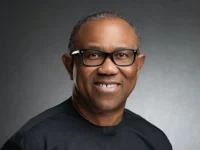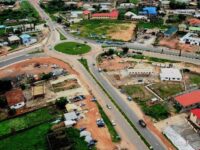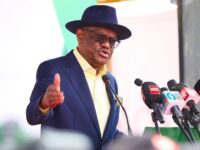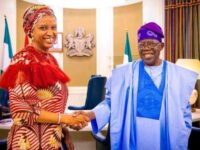In the ever-evolving landscape of Nigerian politics, change is the only constant. From the bustling streets of Abuja to the grassroots movements across its diverse regions, the nation’s political heartbeat reverberates with stories of power, progress, and challenges. This article delves into the latest developments shaking the political arena, offering a clear-eyed view of the decisions, debates, and dynamics shaping Nigeria’s future. Whether it’s electoral shifts, policy announcements, or the intricate dance of alliances, stay informed with the freshest updates at the intersection of governance and society.
Emerging Trends Shaping Nigeria’s Political Landscape
As Nigeria’s political arena evolves, fresh dynamics are taking center stage, redefining power structures and citizen engagement. The rise of youth-led movements is injecting new energy into the discourse, harnessing social media platforms to influence policy discussions and election outcomes. Simultaneously, there is a noticeable shift towards technology-driven transparency, with blockchain and AI innovations gradually being integrated into electoral processes to curb fraud and boost trust. These developments reflect a growing demand for accountability and inclusive governance from a younger, tech-savvy generation.
New alignments and coalitions continue to shape electoral strategies, often influenced by regional interests and socio-economic factors. Key trends include:
- Devolution of power: Increased calls for decentralization and stronger state-level autonomy.
- Policy-focused campaigns: Candidates emphasizing governance and development over rhetoric.
- Environmental concerns: Climate change impacting political agendas, especially in vulnerable communities.
| Trend | Impact | Example |
|---|---|---|
| Youth Participation | Enhanced voter turnout & activism | Social media campaigns |
| Tech Transparency | Reduced election fraud | Blockchain voting trials |
| Policy Focus | Issue-based elections | Development projects prioritization |
Key Players and Power Shifts Influencing Governance
Recent shifts in Nigeria’s political landscape have seen a realignment of power primarily among several influential figures and emerging groups who are redefining governance dynamics. Notably, regional leaders from the South and North have started collaborating more strategically, sometimes blending traditional authority with modern political mandates. Alongside, youth-led movements continue to press for greater transparency and inclusion, amplifying their influence beyond grassroots levels into formal political dialogues. These new power configurations suggest a growing complexity within federal and state government interactions, requiring coalition-building that transcends old party loyalties.
The evolving political arena also highlights the rise of key players who dominate parliamentary debates and policy formulation. To visualize the distribution of influence, consider the following breakdown of parliamentary representation and party influence:
| Group | Estimated Influence | Key Areas of Power |
|---|---|---|
| Established Parties | 45% | National policy & federal budget |
| New Political Movements | 30% | Social reforms & legislative advocacy |
| Traditional Leaders | 15% | Local governance & cultural affairs |
| Independent Representatives | 10% | Judiciary & electoral reforms |
This power matrix underscores the interplay between established political institutions and emerging voices, each shaping governance through negotiation, advocacy, and sometimes confrontation. Understanding these shifts is critical for predicting future policy directions and the stability of Nigeria’s democratic processes.
Analyzing Election Outcomes and Their Broader Implications
The recent elections in Nigeria have revealed a complex mosaic of political allegiances, reflecting deeper socio-economic undercurrents. Beyond the immediate announcement of winners and losers, these results symbolize a shift in voter priorities – from traditional party loyalties to issues like economic reforms, youth empowerment, and security concerns. This transformation suggests a growing desire among the electorate for tangible change, compelling political actors to realign their strategies and focus on inclusivity and sustainable development.
Examining the regional distributions and voter turnout provides further insights into the evolving political landscape:
| Region | Voter Turnout (%) | Dominant Issue | Winning Party |
|---|---|---|---|
| South West | 68 | Economic Reform | Party A |
| North East | 55 | Security | Party B |
| South South | 62 | Youth Empowerment | Party A |
| North West | 60 | Infrastructure | Party C |
This diversity in voter focus highlights the need for tailored policy interventions. Successful governance will depend on the ability to address local realities through a balanced approach that bridges regional divides and fosters national unity.
Strategic Recommendations for Strengthening Democratic Institutions
To fortify the foundations of democracy in Nigeria, it is essential to prioritize transparency and accountability within all branches of government. Empowering independent watchdog agencies with sufficient autonomy and resources can drastically reduce corruption and increase public trust. Additionally, fostering civic education campaigns tailored to grassroots communities ensures that citizens are well-informed of their rights and responsibilities, reinforcing the democratic process from the ground up.
Equally important is the nurturing of inclusive political participation. Implementing policies that encourage representation of marginalized groups-such as women, youth, and ethnic minorities-helps create a more balanced and responsive governance structure. The following measures can serve as guiding pillars:
- Strengthening electoral laws to guarantee free, fair, and transparent elections
- Enhancing the independence and capacity of the judiciary to uphold constitutional rights
- Promoting open data initiatives for public access to government activities and budgets
- Investing in digital platforms for citizen engagement and feedback
| Key Focus Area | Recommended Action |
|---|---|
| Electoral Integrity | Adopt biometric voter verification systems |
| Judicial Independence | Enhance budgetary allocation and training |
| Civic Engagement | Launch nationwide awareness programs |
In Retrospect
As the political landscape in Nigeria continues to evolve with each passing day, staying informed remains crucial for understanding the shifts that shape the nation’s future. From grassroots movements to the corridors of power, the stories unfolding carry the weight of the country’s hopes and challenges. Keeping a steady eye on these developments not only informs our present but also prepares us for the possibilities that lie ahead in Nigeria’s complex and dynamic political journey.

















0 Comments